C21’s top 21 news stories of 2015
C21 looks back over the past 12 months at the 21 biggest stories that shaped the content business in 2015 – a year in which billions were wiped off the value of traditional media stocks and Netflix continued to rise.

Youku Tudou’s Big Brother
Alibaba powers on
Having branched out into the TV and movie business in 2014 with the US$804m majority stake in ChinaVision Media Group, the establishment of its own film studio and the completion of an historic US$25bn stock market debut, Chinese e-commerce giant Alibaba continued to build up its entertainment credentials in 2015. While a potential buyout of US studio Lionsgate never materialised, on its home turf it invested US$383m in the Beijing-based production outfit behind local versions of The X Factor and Don’t Stop Me Now. It followed this move with the launch of its own video-on-demand service called Tmall Box Office, subsequently snapping up content from the likes of NBCUniversal, DHX Media and Sesame Workshop to build out the catalogue. But it was in September that Alibaba really upped the stakes, paying US$3.7bn to take full control of number-one local streaming giant Youku Tudou – home to major Western formats including The Voice Kids and Big Brother. In December, the firm teamed with Youku Tudou rival Tencent on a bid for Chinese film studio and distributor Bona Film Group and launched a joint-venture VoD service with Disney.
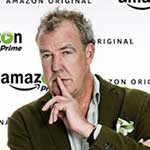
Jeremy Clarkson
Amazon moves up a gear
“I feel like I’ve climbed out of a biplane and into a spaceship,” said ex-Top Gear host Jeremy Clarkson after being sacked from the BBC and, together with his co-presenters, signing a US$250m deal with Amazon for three seasons of a new motoring show. 2015 was huge for the online retail giant. The fruits of a reputed US$2bn annual content budget really started to come through with its first original drama series: Bosch, an adaptation of Michael Connelly’s best-selling crime novels; Ron Perlman psychological drama Hand of God; and The Man in the High Castle, a Philip K Dick adaptation, exec produced by Ridley Scott and Frank Spotnitz. The company also signed Woody Allen for his series debut and got into original movies with Chi-raq, regarded by many as Spike Lee’s best work in years. But Amazon’s biggest moment was in January when Jill Soloway comedy-drama Transparent became the first online-only show to win a Golden Globe. Its second season scored three out of a total five nominations for Amazon in the 2016 shortlist.

Stéphane Courbit
Banijay and Zodiak: better together?
With the mega-merger between Endemol and Shine cranking up the pressure on smaller outfits, Banijay Group and Zodiak Media announced their own in July. Banijay founder Stéphane Courbit and CEO Marco Bassetti will be taking over the merged business, which is expected to take shape in early 2016 and will have combined revenues of some US$1bn. The task of bringing together what C21 sources described as two dysfunctional superindies with burdensome debts, plenty of overlapping production interests and a lack of hit formats in the past few years is not to be underestimated. Zodiak CEO Marc-Antoine d’Halluin wasn’t thought to be keen and will not be sticking around but Courbit looks set to be reunited with Vivendi chairman Vincent Bolloré. The pair, who previously collaborated on an aborted attempt to buy Endemol France, entered exclusive negotiations to give Vivendi a substantial minority stake in the new Banijay-Zodiak business once it emerges.

War and Peace
BBC in turmoil
The BBC had a torrid year as it dealt with budget cuts, arguments over the nature of its programming and perceived political attempts to dismantle it – all the hallmarks of the process that sees the UK public broadcaster agree the level of its licence fee and remit under a royal charter every six years. But perhaps 2015 took its toll more than most. First off came the news that highly rated drama chief Ben Stephenson was leaving, causing a reshuffle that saw Polly Hill take on the key scripted job and BBC Wales drama boss Faith Penhale depart. The BBC’s entertainment shows got a pounding from MPs unhappy at the use of foreign formats such as The Voice, which was duly snapped up by ITV. The latter threatened legal action over plans to create a commercial production arm called BBC Studios. Meanwhile, budget cuts hit content, channels and personnel as the organisation dealt with the £650m (US$970m) cost of providing free TV licences to over-75s. BBC3’s move online continued apace, while BBC Worldwide profits were dented and talk of privatising the commercial arm resurfaced. Having been one of the BBC’s staunchest and most effective defenders, TV chief Danny Cohen announced in October that he was leaving. Charter negotiations conclude next year, so it’s War and Peace for the BBC in 2016 – but the biggest battles have perhaps already left their mark.
 Channel 4 faces privatisation
Channel 4 faces privatisation
While political machinations involving the BBC ahead of charter renewal dominated UK headlines, it turned out similarly controversial plots were brewing regarding the future of fellow public broadcaster Channel 4 (C4). A junior government minister stated in June that there were “no plans” to privatise the ad-funded network but an official was photographed in September clutching a brief outlining exactly such a proposal, and prime minister David Cameron confirmed in November that all options were up for discussion. In parallel, a similar U-turn took place in regard to the terms of trade under which UK independent producers make shows for local broadcasters. Media regulator Ofcom said in July that there was no need to reform this framework, which allows indies to keep the rights to their programmes and exploit them overseas. But culture secretary John Whittingdale made a surprise intervention in September, reversing this. Should terms be revised to hand more rights back to broadcasters, it would inevitably boost C4’s market value, which is already estimated at more than £1bn (US$1.5bn). Viacom’s 2014 purchase of rival Channel 5 suggests a foreign buyer – almost certainly from the US – would be the most likely outcome. C4 CEO David Abraham has described the moves as potentially “devastating.”
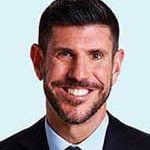
Rich Ross
Discovery’s ‘new chip,’ Olympian moves
Rich Ross wasted no time in making headlines as president of Discovery Channel in the US, having replaced Eileen O’Neill as president at the turn of the year. He pledged the network would move away from ‘fake factual’ and return to core, authentic values. Discovery Networks International sang a similar tune, with Phil Craig, former head of factual at Australian pubcaster ABC, starting in January and promising a “new-chip revolution” of blue-chip programming and wildlife series. Ross was so successful that by August his remit had been expanded to include the Animal Planet and Science channels, but Craig’s reign was short-lived and he left abruptly in October with Discovery veteran Marjorie Kaplan taking over his responsibilities as president of content. Meanwhile, parent company Discovery Communications built on its 2014 investment in Eurosport, paying out €1.3bn (US$1.45bn) for rights to the 2018 Winter Olympics through to the 2024 summer games, and €491m a month later to take full ownership of the business.

Sophie Turner Laing
Endemol Shine reshuffle
Sophie Turner Laing’s first year at the top of Endemol Shine Group (ESG) has been as much about reshuffles behind the scenes as anything on screen. The creation of the ‘mega-indie’ was last year’s big story and with the overall structure of the new entity in place at the start of 2015 the following 12 months were all about further personnel changes. The new UK set-up was first to take shape, with Lucas Church elevated to Endemol Shine UK chairman, only to leave six months later. It wasn’t the only U-turn. Having been made ESG International co-CEO, Gary Carter decided the job wasn’t for him. Shine Australia CEOs Mark and Carl Fennessy decided to leave but then changed their minds. Endemol creative operations chief Iris Boelhouwer had a similar change of heart. Notable exits included Kudos CEO Jane Featherstone, Endemol UK creative chief David Flynn, Shine TV MD Kelly Webb-Lamb and – as part of the new US set-up – Endemol Studios CEO Philippe Maigret, who subsequently resurfaced at ITV Studios America. Scripted remains a priority for the company and through Kudos the firm scored one of the break-out hits of 2015 in Channel 4/AMC Networks’ Humans. MasterChef and Big Brother remain the format stalwarts and while Hunted showed promise with a CBS pick-up, Turner-Laing’s challenge now is to uncover the next big hit. Looking to digital is one way and 2015 saw Endemol Beyond launch an OTT service and partner with AwesomenessTV, but only by getting the flotilla of prodcos sailing in the same direction will the true might of the mega-indie emerge.
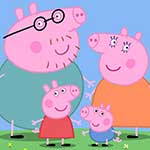
Peppa Pig
eOne aims to bring home the bacon
It’s been a turbulent 12 months for Entertainment One (eOne), ending with a nasty US$450m share price plunge earlier in December. It all seemed to be going pretty well at the start of the year, as the transatlantic producer-distributor returned to the acquisition trail, paying US$127.5m for a 51% stake in Grey’s Anatomy producer The Mark Gordon Company. eOne’s strategy to double in size also seemed to be progressing and the firm took a controlling stake in Peppa Pig co-owner Astley Baker Davies to help achieve this goal. However, the deal, priced at £140m (US$212m) and funded by a £193.6m rights issue, was followed by a £285m refinancing arrangement that cost more than some analysts had expected. Investors were spooked over growth concerns and falling movie revenues, leading to the share plunge – although this has since partially rebounded. A deal with Steven Spielberg’s Amblin Partners ended the year on a positive note and 2016 looks set to be another intriguing year for The Walking Dead prodco.

Bob Iger
ESPN’s ‘modest losses’
Disney CEO Bob Iger’s admission during the company’s third-quarter results in August that ESPN had experienced “modest subscriber losses” triggered panic among investors. The suggestion that consumers may actually be turning their backs on live sports – the largest part of Disney’s business and long thought unassailable – was all the proof that those jittery over suggestions of cord-cutting needed. Results from Viacom and 21st Century Fox did little to quell concerns and US$60bn was wiped off the value of US media stocks within 48 hours, with Comcast, Time Warner, Viacom, 21st Century Fox, Discovery, CBS and others suffering. Traditional media’s pain was new media’s gain. While Time Warner and CBS introduced their own OTT offerings for HBO and Showtime earlier in the year, there is lingering concern that these companies are hamstrung by their legacy businesses. Not so Netflix, uniquely placed to take advantage of and precipitate the disruption. Having grown globally, the streaming giant ends 2015 worth almost as much as Time Warner and 21st Century Fox and more than Viacom, CBS, Starz and AMC Networks combined. But cable remains a cash cow, hence continued US consolidation with Charter Communications’ US$78bn takeover of Time Warner Cable awaiting federal approval and France’s Altice spending US$17.7bn on Cablevision.
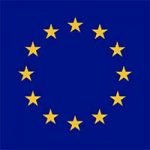 EU single digital market gathers pace
EU single digital market gathers pace
The pace of the European Commission (EC)’s plans to banish geo-blocking and create a single digital market took the industry by surprise in 2015. The plan could be in force by 2017 and would allow customers of content services in one market to access them online across the European Union. The proposals, first revealed in March, immediately drew criticism from TV execs, who said they would cause “enormous problems” for the industry. The EC took particular issue with UK pay TV provider Sky and the Hollywood studios from which it licenses movies. Disney branded the EC’s stance “destructive,” but the commission believes its plan could help drive growth and combat piracy since it would mean Sky or Netflix subscribers in the EU would be able to access content they’ve already paid for anywhere within the territory. The same would be true for BBC licence-fee payers wishing to use iPlayer overseas.

Deutschland 83
FremantleMedia grows by stealth
Having missed out on acquiring All3Media the year before and with no real superindies left, FremantleMedia adopted a new strategy in 2015, making a string of smaller investments. It was an important move, as Fox finally cancelled hit talent format American Idol – a month after Thom Beers stepped down as CEO of the show’s coproducer FremantleMedia North America. Additions to the business included a 25% stake in Man Alive Entertainment this month following a similar deal with fellow UK start-up Full Fat TV in November. Other notable deals included buying into former Fox and Channel 4 exec Simon Andreae’s Naked Entertainment and Corona TV in the UK, No Pictures Please in the Netherlands, Fontaram and Kwai in France and Wildside, the Italian prodco behind forthcoming drama The Young Pope. It was a breakthrough year in scripted for Fremantle, with its German Cold War drama Deutschland 83 selling to numerous broadcasters – including SundanceTV in the US.
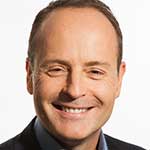
John Landgraf
FX boss predicts drama ‘peak’
FX Networks CEO John Landgraf cast doubt on the notion of TV’s ‘golden age’ by saying there were simply too many shows on air. Landgraf whipped up debate at the Television Critics Association press tour when he said more than 400 original scripted series would debut on US networks in 2015 – up from just 280 half a decade ago – with the number predicted to rise even further in 2016. He said such numbers were unsustainable and that TV drama was now displaying all the hallmarks of a bubble fit to burst. Landgraf predicted that next year would represent a peak and that from 2017 onwards scripted TV would be in decline. But Landgraf’s critics have countered that the best way for any exec to explain away cutbacks in their own commissioning would be to suggest there’s a structural problem within the industry rather than issues at home.

The Voice
ITV finds its Voice
2015 was another huge year for UK commercial broadcaster ITV under CEO Adam Crozier. Significant additions to the business included Poldark producer Mammoth Screen and factual entertainment specialist Twofour Group but the highlight was its £355m (US$531.7m) acquisition of John de Mol’s Talpa Media in May. ITV subsequently took rights to The Voice away from the BBC – a move that could prove crucial with December’s X Factor final delivering its worst performance since the show’s debut in 2004. In drama, the curtain came down on Downton Abbey, leaving another hole in ITV’s weekend schedule. Director of television Peter Fincham was forced to face up to the broadcaster’s ratings struggles. Over in the US, where ITV had made a string of acquisitions in the previous two years, Leftfield Entertainment founder and CEO Brent Montgomery was revealed by C21 as the next CEO of ITV America. Amid a year of union battles stateside, speculation continued to mount that ITV will be taken over by a US firm in 2016. Liberty Global, Viacom and Discovery were all tipped as potential bidders, as was BT in the UK. With ITV’s market value estimated at more than US$10bn, this could be one of the biggest stories of 2016.
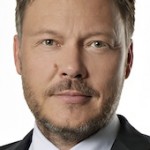
Jørgen Madsen Lindemann
MTG’s digital leap
Few international broadcasters have shifted their strategy more over the space of 12 months than Scandinavia-based Modern Times Group (MTG). President and CEO Jørgen Madsen Lindemann began in January with job cuts at its free-to-air network in Sweden, followed by around 300 further redundancies later in the year. MTG execs were also grappling with the swirling regulatory changes in the Russian market and the firm sold its Russian and international pay TV channel businesses for US$45.5m to meet ownership requirements. Meanwhile, the company ramped up its M&A activity, almost exclusively focusing on the digital sphere. E-sports outfit DreamHack was added to the portfolio for US$28m in November, following similar investments in ESL, the world’s largest e-sports company, plus multichannel networks Zoomin and Splay. MTG’s bet is clear and its success or failure in 2016 will provide an intriguing litmus test for other broadcasters preparing to make their own digital leaps.

James Murdoch
Murdoch dynasty secured
James Murdoch took over from his father Rupert as CEO of 21st Century Fox on July 1, with the latter stepping down to become executive co-chairman alongside his other son Lachlan – previously a non-exec co-chairman. Chief operating officer Chase Carey also stepped back to become an exec vice-chairman – a role in which he will serve until June 30 next year. In conjunction with these changes, the company’s corporate functions and its global television and film operations were realigned to jointly report to James and Lachlan. The move represented a remarkable turnaround for the former, who three years earlier had been forced to resign as chairman of UK pay TV leader Sky. However, having subsequently been instrumental in Sky’s takeover of siblings in Germany and Italy, James Murdoch could well be poised to launch a renewed bid for the entire business or offload 21st Century Fox’s interests in it. Having last year abandoned an US$80bn bid for Time Warner, the Murdochs will doubtless have other things on their minds.

Courteney Monroe
National Geographic’s new direction
Rupert Murdoch’s 21st Century Fox paid US$725m to expand its partnership with National Geographic Society in September. The move was, and still is, billed as a “joint venture” but given that Fox now owns 73% of the business, it’s effectively a takeover. Two months later, 180 jobs were cut from the east coast-based workforce of the channel and magazine. The newly named National Geographic Partners, which encompasses the society, TV channels, studio, magazine and international division, subsequently unveiled a reshaped leadership team in November. This continued the rise of Courteney Monroe, who moved from CEO of Nat Geo US channels to CEO of Nat Geo Global Networks, with responsibility for Nat Geo Studios. Monroe, who as head of marketing was a surprise choice to replace David Lyle as CEO of the channels back in 2014, has certainly made quite an impact in 18 months at the helm. She appointed former Shine and Endemol scripted exec Carolyn Bernstein to a similar global development role, signalling Nat Geo’s growing ambitions in the genre for 2016.
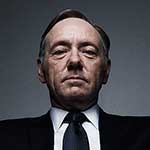
House of Cards
Netflix aims global
Barely a day went by in 2015 when Netflix wasn’t in the headlines. The streamer remains by far the most exciting story in TV – ironic given it comes from outside the business and is rapidly undermining it. The establishment’s love-hate relationship with the Los Gatos upstart intensified this year. Hollywood was a major beneficiary of Netflix’s reputed US$3.3bn acquisitions budget but saw the firm steal accolades in the recent Golden Globe nominations for its new original series such as Narcos, Bloodline and Grace & Frankie, alongside former original winners House of Cards and Orange is the New Black. HBO triumphed at the Emmys but Netflix will spend US$5bn on content in 2016 – more than it, Showtime, Starz and Amazon combined – and has also pledged to double the number of original scripted shows it produces to more than 30. Netflix will likely need to step this up further as it reports growing caution within the TV establishment in licensing content to the streamer. 2015 saw it branch out into movies and natural history and step up international expansion. Having prompted a market scramble in Australia and also launching in Southern Europe and Japan, Netflix is now on track to complete its global roll-out by the end of 2016. Its first UK original, The Crown, and first French original, Marseille, are coming too.

Kenneth W Lowe
Scripps buys TVN
US cablenet operator Scripps Networks Interactive (SNI) made another big play in Europe over the summer. Already a 50% owner of British channels group UKTV and the Travel Channel, it announced a €584m (US$615.3m) deal for top Polish commercial broadcaster TVN in March, buying out stakes held by financial holding firm ITI Group and French media giant Vivendi. It completed the move in July, with boss Kenneth W Lowe saying that it gave the firm a “leadership position in one of the most important media markets in Central Europe.” Scripps head of international Jim Samples recently told C21 about the company’s plans for TVN, with shows and formats being imported and exported from Poland as a result. The move followed a staff shuffle at SNI at the start of the year, with former Discovery exec Phillip Luff taking sole charge as Jon Sichel moved back to the US and Nick Thorogood was made redundant.

Versailles
TF1 takes over Newen Group
French commercial broadcaster TF1 caused controversy when it took a majority stake in Newen Group, one of the country’s largest production companies and home to entities including Braquo and Versailles producer Capa. TF1’s first move into local production caused outrage at France Télévisions, to which Newen was a major supplier, leading it to halt all projects in development with Newen. The French producers’ and authors’ union went further, withdrawing Newen’s membership on the basis that the deal meant it wouldn’t be independent anymore and accusing the producer of disloyalty for not informing France Télévisions in advance. The pubcaster, which claimed it provided Newen with some 60% of its income, demanded regulatory change allowing it to raise its 5% cap on in-house commissions to 25% in response. Its demands for government to block the deal were given short shrift but the relaxation on quotas was granted. TF1 and Newen will now turn their attentions to forging European partnerships spanning format acquisitions, distribution and international coproductions.
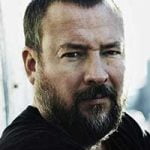
Shane Smith
Vice makes linear move
Vice Media co-founder and CEO Shane Smith closed 2014 telling the Financial Times that the millennial-friendly multimedia company was poised to go on a “deal spree” in 2015, armed with a war chest for content, technology and distribution acquisitions. The firm would even consider an IPO, he said. Neither of these things materialised but Vice continued to convince traditional media it’s one of the few businesses capable of reaching young people. Ironically, it’s using traditional media to do this, launching its own linear TV channel next year. Viceland, one of a number of networks it has planned, will replace investor A+E Networks’ H2 channel in the US from February. Meanwhile, A+E co-owner Disney became the latest to plough money into the firm, putting in US$400m recently to value Vice at around US$4bn. Vice earlier hired James Rosenstock to oversee international and corporate development. Having helped steer Discovery’s acquisitions of SBS Nordic, All3Media and Eurosport, Rosenstock may yet get that “deal spree” underway in 2016.
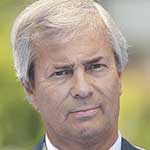
Vincent Bolloré
Vincent’s Vivendi vision
Vivendi chairman Vincent Bolloré embarked on an ambitious expansion plan after strengthening his position at the French media group with an increased stake. Having netted some US$10bn through the sale of interest including SFR and Activision Blizzard in 2014, Bolloré set about honing Vivendi’s media portfolio, which includes French pay TV leader Canal+ and Universal Music Group. Soon after, the firm acquired a majority share in French online video service Dailymotion and through the summer built up its holding in Canal+, with Bolloré’s growing influence prompting the departure of long-serving CEO Rodolphe Belmer. Vivendi took full control of Canal+ shortly after, with Bolloré installed as chairman, and a string of further senior management changes ensued. But the firm is set to benefit from US$2bn of investment. Meanwhile, Vivendi further signalled its strategic intent when it entered exclusive negotiations to become a stakeholder in the newly merged Banijay-Zodiak group and snapped up three independent producers.












 Channel 4 faces privatisation
Channel 4 faces privatisation



 EU single digital market gathers pace
EU single digital market gathers pace













.jpg)




























